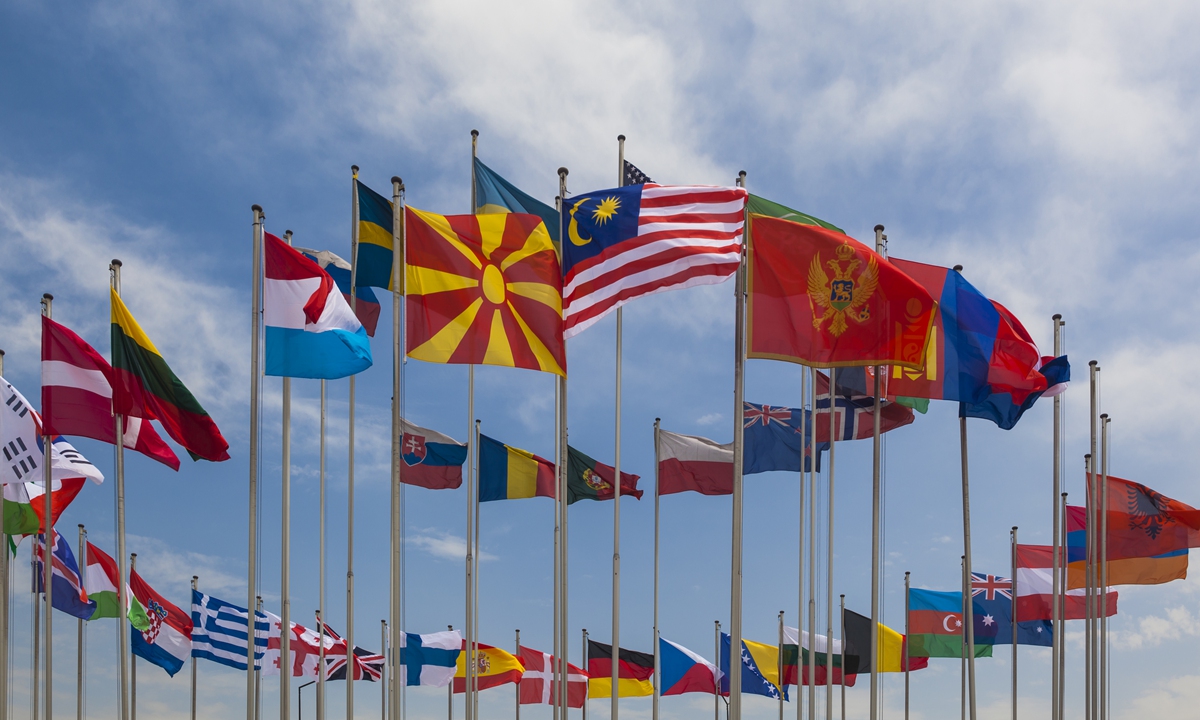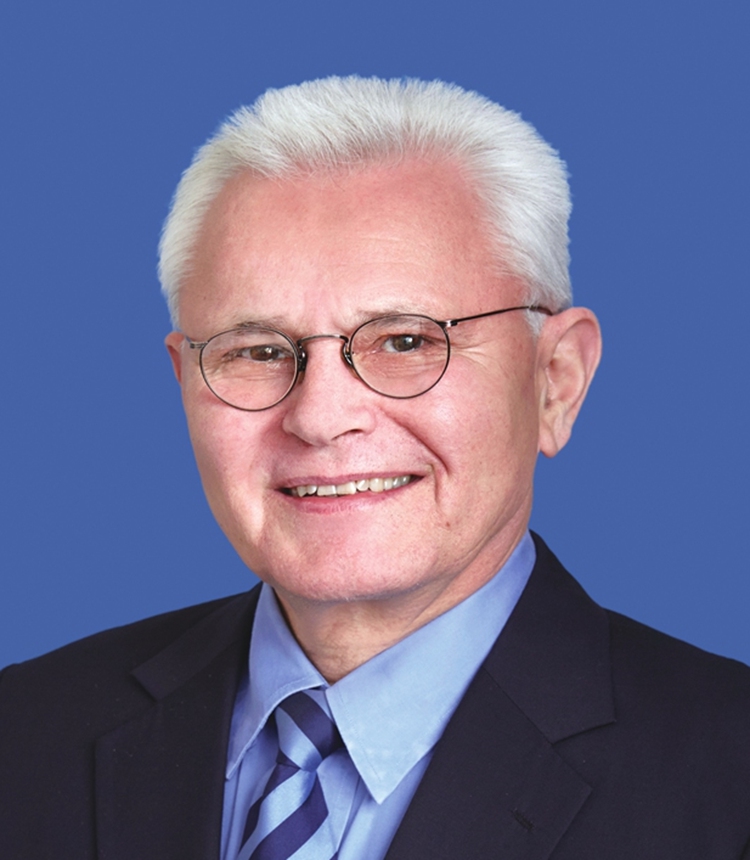China's vision offers an opportunity to reflect on a sustainable intl security structure: former Danish diplomat

Photo: VCG
Editor's Note:
During the past decade, the world has increasingly witnessed the trend of "the East is rising, and the West is declining" in the spheres of economy, security and discourse power. The Western countries, particularly the US, plagued by internal woes, have sought the old path of passing the buck and instigating turmoil elsewhere to ease their own pressure. China, representative of the emerging countries, is proposing the new solutions to global problems. By advocating win-win development, facilitating consultation and reconciliation, proposing a balanced and effective security mechanism, China is striving for building a community with a shared future for mankind.
In the second of this series, Carsten Boyer Thøgersen, a former diplomat with the Ministry of Foreign Affairs of Denmark and the European Commission, told Global Times reporter Lu Yuanzhi that the China-proposed Global Security Initiative is a different approach to international cooperation than that proposed by the US and gives all nations an opportunity to reflect on a sustainable international security structure.
GT: NATO has continued its military aid to Ukraine as the Russia-Ukraine conflict has lasted more than 100 days. NATO pursues absolute security, but it brings insecurity to Russia. Do you think this NATO-dominated security mechanism can exist in Europe for a long time?
Thøgersen: NATO was established in 1949 at the beginning of the Cold War which was a confrontation between Western allied countries headed by the US and Eastern European countries headed by the Soviet Union. The Cold War was a worldwide conflict involving several continents. When the Soviet Union was dissolved in 1991, the primary objective of NATO ceased to exist.
Russians are Europeans and Russia west of the Ural Mountain Range is part of Europe. After 1991, cooperation on security issues in Europe is a regional European question and should be handled by Europeans themselves. Such cooperation should be based upon diplomacy and negotiations.
GT: Some analysts believe that Europe bears huge losses caused by the Russia-Ukraine conflict. The continent is encountering a series of consequences such as rising energy prices and a sluggish economic recovery. What's your take?
Thøgersen: Europe including Russia and Ukraine will undoubtedly suffer long-term economic losses because of the Russia-Ukraine conflict. For Europeans this is a sad prospect for the future economic development in Europe.

Carsten Boyer Th?gersen
GT: The US seems to have an incentive to prolong the Russia-Ukraine crisis. Are you worried about war spillover? Will more European countries be involved?
Thøgersen: The present armed conflict between Russia and Ukraine could have been prevented. Ukraine's position in the European security structure - neutral, Western-oriented or Russian-oriented - has been a central question for more than 20 years. The Russian invasion of Ukraine doesn't solve this problem and a prolongment of the armed conflict even less. Apparently, the US endgame is the total defeat of Russia. Elimination of a nation like Russia will not happen. Existing security problems must be addressed through negotiations.
GT: From a non-European perspective, NATO's eastward expansion to Russia's doorstep is the root cause of the Ukraine crisis. As a European, what's your take on the bloc's five rounds of eastward expansion?
Thøgersen: One country invading another sovereign country is not acceptable. This is breaking a fundamental principle in international politics, whatever the cause may be. That said, there is a history behind the Russian invasion, and it is obvious that Russia saw its security concerns challenged. However, whatever concerns, solutions to questions on security shall be pursued through diplomacy and negotiations, not by military means.
GT: Some analysts believe NATO may expand into Asia. AUKUS and Quad are all part of this. What's your take?
Thøgersen: Article 6 of the North Atlantic Treaty defines the geographic scope of NATO as covering "an armed attack on the territory of any of the Parties in Europe or North America." Until a few years ago, East Asia and China was not on the agenda of NATO. At the end of June 2022, a NATO summit will take place in Madrid and China will be on the agenda. We shall wait and see the official statement after the meeting.
GT: Chinese President Xi Jinping in April proposed a Global Security Initiative which stressed a commitment to the vision of common, comprehensive, cooperative and sustainable security. The unilateral security architecture has brought a great deal of conflict and instability to the world. The new era calls for a new security concept. What do you think of this proposal?
Thøgersen: In April 2022 at the Boao Forum for Asia in Hainan, China's President Xi Jinping launched the Global Security Initiative. The initiative includes all countries, is committed to respecting the sovereignty and territorial integrity of all countries, uphold non-interference in internal affairs and committed to abiding by the purposes and principles of the UN Charter. The Five Principles of Peaceful Coexistence and the Bandung Spirit from the 1950s are also mentioned. The initiative is a different approach to international cooperation than that proposed by the US and gives all nations an opportunity to reflect on a sustainable international security structure. For that reason, the Global Security Initiative should be welcomed.
GT: Many developing countries, such as India, have expressed different positions from the US and Europe in terms of the Ukraine crisis. What's your view? Does it represent a kind of new trend?
Thøgersen: Most of the developing countries see the Russia-Ukraine conflict as a regional European confrontation and many developing countries have different views on the conflict than the US and the EU. For now, it is difficult to see this as a new trend.
GT: Some European leaders underline Europe's strategic autonomy. How do you see the prospect of European strategic autonomy? Against the backdrop of Europe's pursuit of strategic autonomy, what's your opinion about the future of China-EU cooperation?
Thøgersen: In 2003, Germany and France did not support the US invasion of Iraq. That was a manifestation of German and French strategic autonomy.
Today, the geopolitical landscape and security structure of Europe is still influenced by the outcome of the World War II. The US has 65,000 troops based in Europe, half of which are in Germany. In 2020, the United Kingdom closed its last military base in Germany and withdrew its remaining troops. In terms of military capacity, economy, financial structures, and political influence, the US is the number one superpower in the world. Except for a handful, all 27 EU member states are also members of the NATO. European strategic autonomy will have to be negotiated with the US. For the EU when it comes to cooperation with China, the EU will have to consider its relationship to the US.

